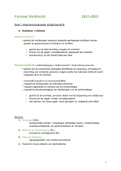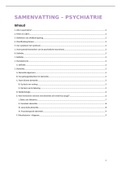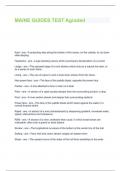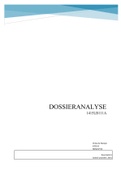DURESS
Reading: **Merkin and Saintier, Poole’s Textbook on Contract Law, ch.15, pp.588-596
Gardner, “Does lawful act duress still exist?” (2019) 78 Cambridge L.J. 469
NOTE: This area of law is currently under consideration by the UK Supreme Court in Times Travel
(UK) Ltd v Pakistan International Airlines Corporation (hearings took place on 2/3 November 2020). A
ruling in this case is likely before the Term 3 exam. If a judgment is handed down before the exam,
you will be given an update.
North Ocean Shipping Company v Hyundai Construction, The Atlantic Baron [1979] Q.B. 705
Duress is a doctrine which is today most commonly deployed in circumstances where there is an
existing contractual relationship, and one party seeks to push through a variation to the terms of the
contract which the other party would prefer not to agree to. If the other party does give in, the
doctrine of duress may enable that party to have the variation set aside subsequently.
The type of duress we are most concerned with is “economic duress”. Historically, duress was limited
to actual or threatened physical violence, particularly to induce a party to enter into a contract.
Economic Duress
“It is now accepted that economic pressure may be sufficient to amount to duress...provided at least
that the economic pressure may be characterised as illegitimate and has constituted a significant
cause inducing the [claimant] to enter into the relevant contract.” (Lord Goff in The Evia Luck (No.2)
[1992] 2 A.C. 152).
The ingredients of economic duress were summarised by Dyson J in DSND Subsea Ltd v Petroleum
Geo-Services ASA [2000] B.L.R. 530 thus:
“The ingredients of actionable duress are that there must be pressure, (a) whose practical
effect is that there is a compulsion on, or lack of practical choice for, the victim, (b) which is
illegitimate, and (c) which is a significant cause in inducing the claimant to enter into the
contract…”
In this context, it is important to distinguish between mere commercial pressure (“driving a hard
bargain”) and the type of pressure which crosses the line into illegitimacy.
Atlas Express Ltd v Kafco (Importers and Distributors) Ltd [1989] Q.B. 833
1
, (1) Pressure amounting to compulsion
Initially, theoretical justification for duress was “overborne will” theory
This was expressed as the question whether there had been a “coercion of the will, which vitiates
consent”: Pao On v Lau Yiu Long [1980] A.C. 614, p.636.
This might suggest that the foundation of duress is a complete absence of consent, but if this were
correct, then there would not be a contract at all (or, in terms of outcome, the contract would be
“void”).
The current approach sometimes talks about compulsion of the will due to illegitimate pressure, and
that there is therefore consent, albeit consent obtained by improper means (defective consent still
results in an effective contract, but such a contract can be set aside (“avoided”).
This reflects shift away from “coercion of the will” to recognition that there is consent albeit consent
obtained through illegitimate pressure seen in earlier cases:
Universe Tankships of Monrovia v International Transport Workers Federation, The Universe Sentinel
[1983] 1 AC 366
Lord Diplock:
“It is, however, in my view crucial ... to identify the rationale of this development of the
common law. It is not that the party seeking to avoid the contract which he has entered into
with another party, or to recover money that he has paid to another party in response to a
demand, did not know the nature or the precise terms of the contract at the time when he
entered into it or did not understand the purpose for which the payment was demanded.
The rationale is that his apparent consent was induced by pressure exercised upon him by
that other party which the law does not recognise as legitimate, with the consequence
that the consent is treated in law as revocable ...”
Lord Scarman:
“…The classic case of duress is, however, not the lack of will to submit but the victim’s
intentional submission arising from the realisation that there is no other practical choice
open to him…”
This approach was further endorsed in R v A-G for England and Wales [2003] UKPC 22
Lord Hoffmann said that there were two elements to “duress”:
(1) Pressure amounting to compulsion of the will of the victim
(2) The pressure has to be illegitimate
2






